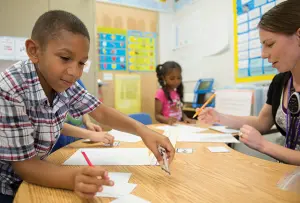Parental Divorce: How it affects a child’s grades in school
Look up the internet and you will find out that, as per statistics, most of the divorce cases involve children. However, statistics cannot really go on to “measure” the trauma that every child experiences during parental divorce. The effect of this trauma is directly manifested in their studies. We will explore how.
Parental divorce affecting children’s education: What the experts have to say
The author of Children in Crisis, Fran Newman explains that children of parents going through a divorce, often feel responsible for the outcome. If there’s nobody to clear out that the divorce is not their (i.e. the children’s) fault, then the “guilt” persists. The author maintains that one of the areas significantly affected by the divorce is the child’s education. A few years ago, it had been predicted that in the US around 50% of the marriages would end in divorce. Children of divorced parents are vulnerable to depression or psychological stress whereby they either become withdrawn or start acting differently. This, in turn, results in deteriorating grades. The child may even start acting out in class.
It is very important for both the parents to make an effort to reach out to the teacher in these cases. The connection between home and school is vital. A prudent and caring teacher will immediately identify signs of change in the student. It is important for parents to communicate to the teacher the situation back at home. If needed, you can also make an effort to reach out to a school counselor or for that matter a family counselor who your child and you can consult.
What the studies have to say: Do you have more reasons to worry now?
According to a recent study, teachers actually perceived that younger children coming from broken homes (i.e. whose parents are divorced, here), showed greater signs of experiencing behavioral and emotional challenges than the ones who didn’t have such issues back at home.
Prolonged poor academic performance, as we all know, might as well impact your child’s career adversely. As such, the divorcing parents should reach a consensus and approach the child together and explain the situation to him. Clear it out from the very beginning that he is not responsible for the divorce and that there is absolutely no reason why he should hold himself responsible for the fiasco. If possible, try and maintain an amicable equation with your ex-partner – at least in front of your child.
Leave a Reply
You must be logged in to post a comment.















